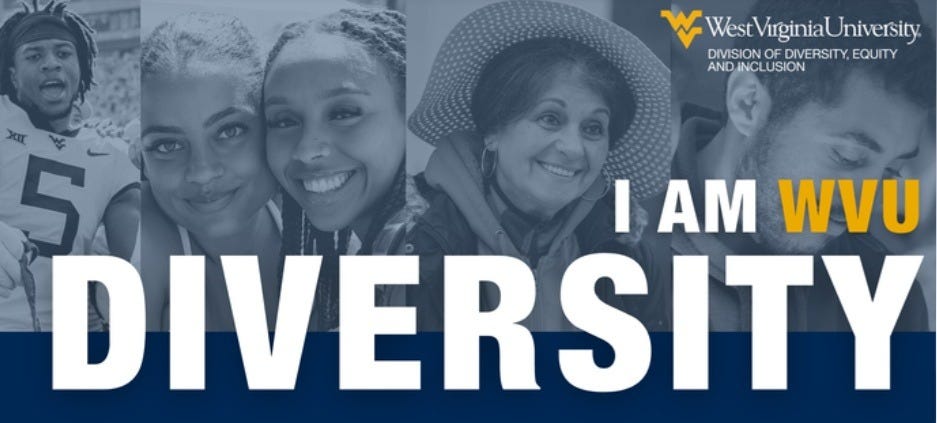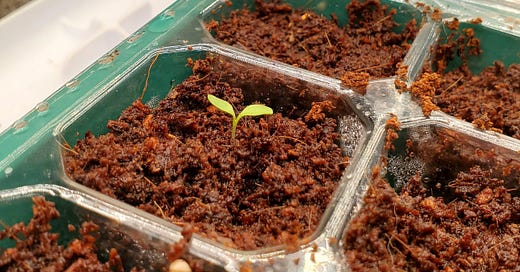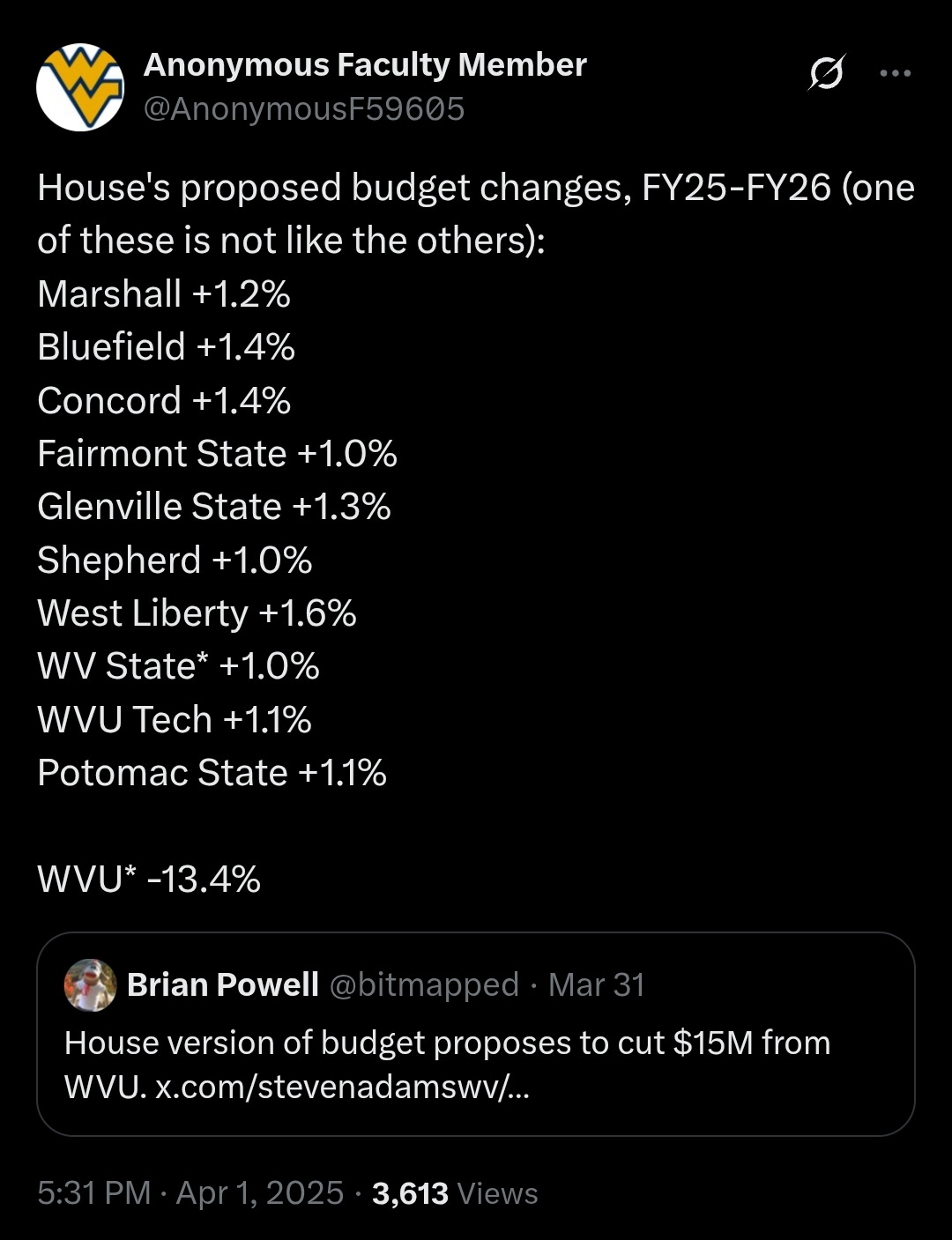Hear y’all, hear y’all! Catherine at the keyboard for this week's Scout.
~For absolutely no reason whatsoever~ I’ve been thinking a lot about self-preservation in the face of constant crises and a turbulent news cycle. To strike a balance between the frantic urge to take part in direct action and the need to slow down, recover, and focus our energies, I find my thoughts have wandered to a kind of niche activism. Essentially, it’s about picking your battles—and giving yourself permission to not fight every fight.

This framing acknowledges that people engage in different forms of political action based on their specific identities, life experiences, social networks, and material conditions. We don’t all need to be experts or reformists in every issue, and we certainly don’t need to burn out trying. It’s perfectly fine to pick your fight and dig in deeply—without feeling guilty about the things you’re not tackling. In fact, focusing your activism allows you to contribute more sustainably and be in more meaningful solidarity with people who prioritize your cause in equal weight; all without drowning in all the things that demand justice.
And here’s the thing: focusing on our own little corners of the world doesn’t mean we’re working in silos. In our everyday connections and encounters, we gain insight into each other’s struggles, draw inspiration from others’ efforts, and channel that energy into our own causes. And sometimes we find that our niches overlap or intersect. To this overlap, we each bring our own developed proficiencies to merge and share, as part of the whole to realize collective momentum.
Now, let me share the concerns out of my own little corner and potential impacts our town and gown community.
On Our Minds
Legislative moves and WVU. Lots to catch you up on here, so let’s dive in, bullet-point style:
WVU rolls over in anticipatory obedience to anti-DEI legislation. In late January, West Virginia University announced the closure of its Division of Diversity, Equity, and Inclusion (DEI) to align with state and federal orders, replacing it with the oh-so-aptly named Division of Campus Engagement and Compliance. This premature move, made in response to Executive Orders from President Trump and WV Governor Morrisey, signals WVU’s swift and precipitous submission to political pressures against DEI initiatives. Given its position and influence as the state’s flagship school, WVU ought to be leading the charge in resisting (or at least creating some friction to) these harmful policies, not capitulating to them. If any institution in the state could push back against this overreach, it’s WVU.

WVU selects a new college president. After a year-long search, Dr. Michael Benson was named the 27th president of the university, to succeed the retiring President Gordon Gee in July. I couldn’t help but let out a huge sigh of relief at news of this appointment—my fear was that we'd end up with a candidate with a business degree who would continue Gee's approach of treating the university like a corporation, sidelining holistic education and faculty needs. Even worse, I dreaded the possibility of a political figure (GOP or otherwise) taking the helm, which would have resulted in leadership from someone with zero academic teaching or research experience, little insider understanding of higher education, and misguided notions on how universities should function.1 So, it was a welcome surprise when Benson, a historian with four university presidencies under his belt, a record of supporting the humanities, and a substantive connection to Appalachia, was chosen. Still, it's unsettling to know just how close we came to one of those other nightmare scenarios. According to a leaked report (the search committee had a strict non-disclosure agreement), Benson beat out two other finalists, namely UMass Amherst's chancellor and former WVU business school dean, Javier Reyes, as well as West Virginia House Speaker Roger Hanshaw (R). Keep an eye on that latter name—more on him later when some petty drama unfolds.
Gov. Morrisey and WVU’s NCAA snub. Our new governor follows in his predeccesor’s tradition of making national headlines for foolish antics. Governor Morrisey and WV Attorney General McCuskey were lampooned for announcing plans to launch an investigation into the NCAA snubbing and exclusion of WVU men’s basketball team from the March Madness tournament. Sports commentator Shannon Sharpe, with an immensely (as the kids say) ‘based’ take, slammed the governor, saying, 'Now there are some miscarriages of justice that’s going on in West Virginia that would deem those [taxpayer] resources more appropriate…the education system, the housing: that is a miscarriage of justice, not this.” Preach, Shannon, preach.
Bill removes BOG voting power from WVU student, faculty, and staff seats. The West Virginia House of Delegates passed a bill that would strip voting power from faculty, staff, and student representatives sitting on WVU’s Board of Governors (BOG). Last week, House Bill 3279 was passed in the House with a vote of 62-35 and now advances to the Senate. Additionally, the bill increases the number of members on the BOG but hands more control to gubernatorial appointees, with the governor choosing 15 members, up from 12. While the bill claims that diverse perspectives would still be included, it wholly disregards the direct input of those most connected to WVU’s campus and mission—faculty, staff, and students—who have the most relevant stake in the major university decisions that the BOG takes on in its work. This move further centralizes control away from those with firsthand experience of the institution’s needs and challenges. Having passed the House, it now advances to the Senate and is slated to be reviewed by the Senate Government Organization Committee later this morning at 9:00am.
WVU is singled out for substantial cuts in the House budget. Last Friday, the West Virginia House of Delegates passed its version of the state budget for the next fiscal year. Of note, $15 million was slashed from the state’s allotment to WVU. This feels targeted, especially considering how no other institutes of higher education included in this budget saw a reduction in state funding.
Unfunded mandate to establish a Civics Center at WVU, just ripe for cronyism. A new bill approved by the WV House mandates that WVU establish a civics learning center, which would be overseen by a governor-appointed director and operate outside the university’s established academic processes. At a time when WVU is facing severe budget pressures, including significant cuts to faculty lines and long-standing academic programs to meet declining enrollment, this bill fails to commit state funding for the director position, the five faculty positions, and the supporting positions required to administer the center. Equally as alarming, the operation of the Center circumvents the regular university processes like curriculum approval, promotion and tenure, and budgetary oversight that the rest of the WVU’s academic units are required to navigate. This unfunded and politically-driven initiative is yet another blow to the university's already strained resources, and only serves to further entrench partisan control over educational offerings.
Now this piece of legislation took most of us at WVU entirely by surprise. Like me, you may be wondering, where did this bill even come from?! Well, now it’s time for the hidden Easter egg 🥚 I hinted at earlier: The bill is co-sponsored by none other than House Speaker Roger Hanshaw (R), the very same who was rumored to be in the final running for WVU’s presidential search. Does anyone else find it curious that a piece of legislation creating a politically-appointed position at WVU just happens to be pushed by someone recently overlooked for a leadership role at WVU? Well, no…surely not….no one could possibly be petty, retributive, and entitled enough to use legislation as a backdoor attempt to secure a position for themselves. Right?!
And that should bring you relatively up to date with all the major goings-on of the university in your backyard. If you’d like to follow these legislative changes as they progress, the WVU Faculty Senate has a useful legislative tracker while the WVU Government Relations team supplies a weekly newsletter with more in-depth updates called Under the Dome. Things move fast during the tail end of the state’s legislative session, so I suspect we all might be operating on partial zombie mode until then. Even when we’re not thinking about it directly, it’s somehow still present in our minds, like a ghost program in our operating systems. So here’s to another 6 marathon days until we can all take a full breath again!
In Our Community
Catch the first-ever address of the new campus president to the WVU community in Dr. Benson’s remarks at today’s (April 7) faculty senate. The event is live-streamed and kicks off at 3:15pm.
Calling all you crafty cats out there. The Morgantown Public Library is holding its Adult Craft Night: Crochet Flowers on Thursday, April 10 starting at 5:30pm. No experience necessary and all materials are provided free, registration is encouraged.
Mark your calendar for the April Mutual Aid Fair that will feature food, resource connection, medical supplies, and community. It will take place from 6-8pm on April 10, 2025 at 456 Spruce St.
Stop in at the inaugural community-focused Pleasant and High Social Club hosted by Chestnut Beer Hall on Thursday April 10 starting at 7pm. Join in as they speak to two guests who help individuals with addiction and shelter needs in downtown Morgantown.
Spring has sprung, and you can celebrate that fact at the Spring Flower Festival at the WVU Core Arboretum on Saturday, April 12 starting at 2pm. The event features food trucks, music, games, and most importantly, flowers!
I most certainly made omissions. So please don’t hesitate to drop an event of interest to the Scout readership and its details in a comment below!
Have a restful week and we’ll catch you in the next one,
Catherine & the Scout team
There is an alarming trend of appointing politicians to university leadership positions, particularly in red states like Florida, leading to serious harm to America’s higher education landscape. But that’s a rant for another day.




